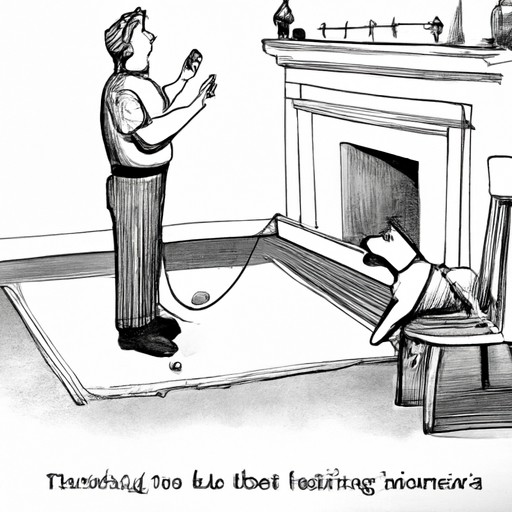Understanding the Howling Behavior
Your dog’s howling can be quite endearing, but when it becomes a persistent issue, it can also be a source of concern. Howling is a primal behavior that dogs use to communicate with each other and their human companions. The reasons for howling can range from loneliness, stress, hunger, or even a response to certain sounds like sirens or other dogs.
While your dog’s howling may be indicative of their emotional state, it can also disrupt your peace and quiet, and even pose problems with your neighbors. Thus, it’s important to understand why your dog is howling and how you can help them stop.
Identifying the Trigger
Identifying the trigger for your dog’s howling is the first step in addressing the issue. This can be a challenge, but observing your dog’s behavior closely can provide valuable clues.
Here are some common triggers for dog howling:
– Separation anxiety: Dogs often howl when left alone, signaling their distress.
– Environmental sounds: Certain sounds can trigger dogs to howl such as sirens, music, or other dogs.
– Attention-seeking: Dogs may howl to get your attention or to express excitement.
– Medical issues: If the howling is accompanied by other unusual behaviors, it could be a sign of pain or discomfort.
Training Your Dog to Stop Howling
Training your dog to stop howling is a process that requires patience and consistency. Here are some strategies you can employ:
- Ignore the howling: If your dog is howling for attention, ignoring them can send the message that howling won’t get them what they want.
- Distract your dog: When your dog starts to howl, distract them with a toy or a game.
- Use a command: Train your dog to stop howling on command. Start by saying “quiet” or “stop” when they start howling, and reward them when they stop.
- Address the cause: If your dog is howling due to loneliness or boredom, providing more stimulation and company can help. If your dog is howling due to a medical issue, seek veterinary care.
Seeking Professional Help
If your efforts to train your dog to stop howling aren’t working, it may be time to seek professional help. A dog trainer or a behaviorist may be able to provide additional insights and strategies.
| Type of Professional | When to Consider |
|---|---|
| Dog Trainer | If your dog’s howling is due to behavioral issues |
| Veterinarian | If your dog’s howling is due to medical issues |
| Animal Behaviorist | If your dog’s howling is due to emotional issues |
Creating a Calm Environment
Creating a calm and comfortable environment for your dog can also help reduce their howling. This includes providing plenty of physical and mental stimulation, ensuring they have a comfortable space to rest, and maintaining a consistent routine.
- Physical stimulation: Regular exercise can help keep your dog calm and reduce howling.
- Mental stimulation: Interactive toys and puzzles can keep your dog mentally engaged and reduce boredom.
- Comfortable space: Ensure your dog has a comfortable and quiet space to rest.
- Consistent routine: A consistent daily routine can provide a sense of security and reduce anxiety.
FAQ
Q: Can howling be a sign of a medical issue in dogs?
Yes, in some cases, howling can be a sign of a medical issue, particularly if it’s accompanied by other unusual behaviors.
Q: Can I use a shock collar to stop my dog’s howling?
It’s not recommended to use shock collars or other forms of punishment to stop your dog’s howling as it can lead to fear and anxiety.
Q: Can certain breeds of dogs be more prone to howling?
Yes, some breeds like Huskies and Alaskan Malamutes are more prone to howling.
Q: How long does it take to train a dog to stop howling?
The amount of time it takes to train a dog to stop howling can vary greatly depending on the cause of the howling and the individual dog. Patience and consistency are key.



